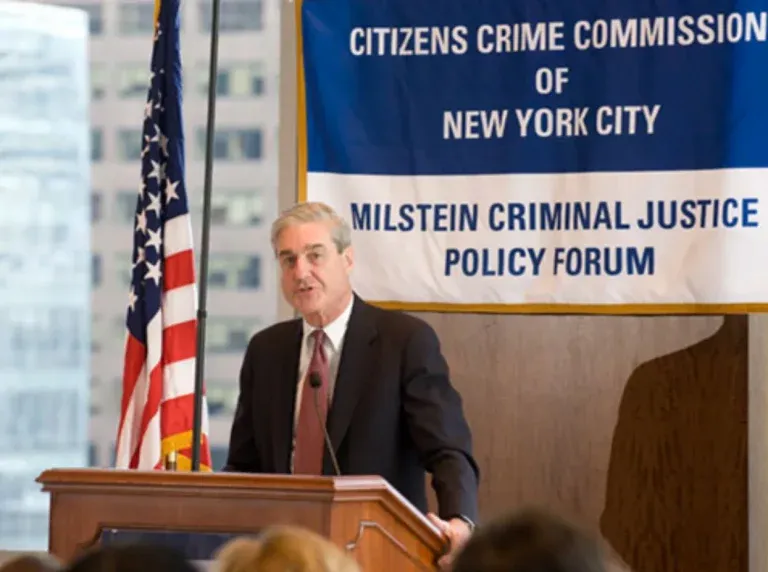A few times a year, we are struck by statements, images and speeches that have not stood the test of time due to changes in public discourse, the evolution of critical thinking and just plain modern trends.
One speech that has aged well is Robert Mueller’s 2011 discourse for the Citizens Crime Commission of New York. Although this presentation respectively separates itself from us and from the 9/11 attacks by a decade, it stands as a reminder that despite a general enlightenment trend infusing society over the past few decades and even centuries, much of what we call progress may be fueled by corruption from within “iron triangles” that facilitate illicit global activity as they link together global business leaders, corrupt officials and organized criminals.
From our vantage point in a post-Pandora Papers world, we can begin to appreciate this pre-Snowden, FBI speech as it beckons us to revisit how our own roles as consumers are themselves influenced by the butterfly effect of our inadvertent participation as products in an ecosystem fueled by invisible hands:
Today, we communicate by texting, tweeting, and Skyping. We take pictures without film, we read books without pages, and every six-year-old has a smart phone. We share the sundry details of our lives on Facebook.
These shifts are the result of globalization and technology. And we have all felt the ripple effects.
We in the FBI have seen a marked shift in criminal and terrorist threats.
We face evolving threats from violent gangs, computer hackers, child predators, and white collar criminals.
Some believe that organized crime is a thing of the past. Unfortunately, this is not the case. Traditional criminal syndicates still con, extort, and intimidate American citizens.
The playing field has changed. We have seen a shift from regional families with a clear structure, to flat, fluid networks with global reach. These international enterprises are more anonymous and more sophisticated. Rather than running discrete operations, on their own turf, they are running multi-national, multi-billion dollar schemes from start to finish.
We are investigating groups in Asia, Eastern Europe, West Africa, and the Middle East. And we are seeing cross-pollination between groups that historically have not worked together. Criminals who may never meet, but who share one thing in common: greed.
They may be former members of nation-state governments, security services, or the military. These individuals know who and what to target, and how best to do it. They are capitalists and entrepreneurs. But they are also master criminals who move easily between the licit and illicit worlds. And in some cases, these organizations are as forward-leaning as Fortune 500 companies.
These criminal enterprises are making billions of dollars from human trafficking, health care fraud, computer intrusions, and copyright infringement. They are cornering the market on natural gas, oil, and precious metals, and selling to the highest bidder.
These crimes are not easily categorized. Nor can the damage, the dollar loss, or the ripple effects be easily calculated. It is much like a Venn diagram, where one crime intersects with another, in different jurisdictions, and with different groups.
How does this impact you? You may not recognize the source, but you will feel the effects. You might pay more for a gallon of gas. You might pay more for a luxury car from overseas. You will pay more for health care, mortgages, clothes, and food.
Yet we are concerned with more than just the financial impact. These groups may infiltrate our businesses. They may provide logistical support to hostile foreign powers. They may try to manipulate those at the highest levels of government. Indeed, these so-called “iron triangles” of organized criminals, corrupt government officials, and business leaders pose a significant national security threat.
Let us turn for a moment to the link between transnational organized crime and terrorism. If a terrorist cannot obtain a passport, for example, he will find someone who can.
Organized criminals have become “service providers.” Could a Mexican group move a terrorist across the border? Could an Eastern European enterprise sell a Weapon of Mass Destruction to a terrorist cell? Likely, yes. Criminal enterprises are motivated by money, not ideology. But they have no scruples about helping those who are, for the right price.

